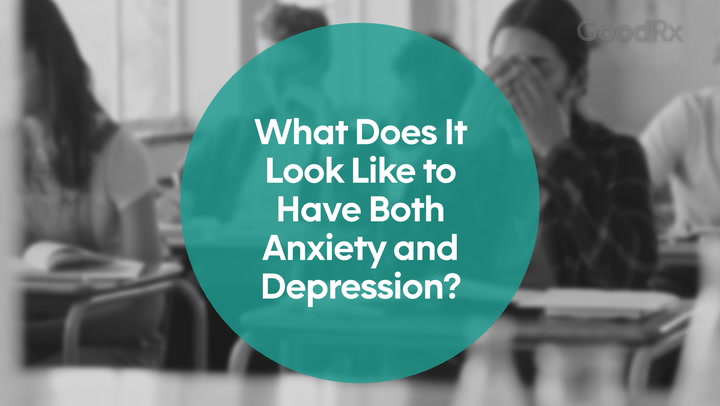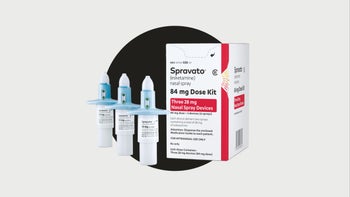
What Is Obsessive-Compulsive Personality Disorder (OCPD)?
Key takeaways:
Obsessive-compulsive personality disorder (OCPD) is a mental health condition that causes you to be preoccupied with order and control.
OCPD symptoms — like being overly focused on details, being inflexible in your thinking and actions, and having trouble delegating — can lead to challenges at work, school, and home.
Therapy can help people with OCPD understand their symptoms and improve their relationships.

Obsessive-compulsive personality disorder (OCPD) is a type of personality disorder. Personality disorders are a group of mental health conditions characterized by ongoing patterns in how you:
Think about yourself and your world
Act and behave
Interact with other people
Interact with your environment
People with OCPD are preoccupied with perfectionism and order, to the point that it causes problems at work, school, and home. Though people with OCPD can appear to be doing well — and even thriving — their symptoms can lead to challenges like:
Conflicts in personal relationships
Conflicts in professional environments
Difficulty at work or job loss
Relationship loss
Search and compare options
Read on for more information about OCPD, how it’s different from obsessive-compulsive disorder (OCD), the symptoms, and potential treatments.
What is obsessive-compulsive personality disorder (OCPD)?
OCPD is one of 10 different personality disorders listed in the DSM-5-TR. The DSM is a handbook that healthcare professionals use to diagnose mental health conditions.
OCPD is characterized by an intense fixation on order, perfectionism, and control. People with OCPD hold themselves — and often others — to very high standards. OCPD affects about 1 out of every 100 people in the United States.
What causes obsessive-compulsive personality disorder?
Like many other mental health conditions and personality disorders, OCPD probably comes from a combination of genetics and life experiences.
There’s some evidence that OCPD — like other personality disorders — is linked to:
Having a genetic mutation that affects your serotonin levels
Growing up with parents who were unavailable or overly controlling or protective
Experiencing harsh punishment or verbal abuse as a child
Read more like this
Explore these related articles, suggested for readers like you.
What are the symptoms of OCPD?
Symptoms of OCPD vary from person to person. To be diagnosed with OCPD, you must have at least four of the following eight symptoms:
Being so preoccupied with rules, organization, or details that you lose sight of the actual point of the task or project
Being so focused on doing a task “perfectly” that you have trouble finishing it
Being overly dedicated to work and productivity (not for financial reasons), to the point that it gets in the way of other activities and relationships
Being inflexible or overconscientious about ethics, morals, and values
Being unwilling to part with worn-out or worthless objects, even if they don’t have any sentimental value
Being reluctant to delegate tasks to others or work with others unless they follow the same standard of doing things
Being overly careful with money to save it for future disasters
Being overly rigid or stubborn
Like all personality disorders, your symptoms have to show up in at least two or more of the following areas:
How you think about yourself and your world
How you react in different situations
Your personal and professional relationships
How well you’re able to manage your actions
In addition:
Your symptoms need to have been around for a long time — at least since you were a teen or young adult.
Your symptoms can’t be caused by substance use or another mental or physical health condition.
And remember: Having OCPD traits or symptoms doesn’t automatically mean you have OCPD. We all have personality types, and some traits of OCPD can be strengths in moderation. For example, it can be helpful to pay attention to details at work. To be diagnosed with a personality disorder like OCPD, your symptoms have to cause significant disruption in your personal or professional life.
What is the difference between OCPD and OCD?
Obsessive-compulsive disorder (OCD) is another mental health condition. People with OCD have:
Obsessions: These are intrusive, unwanted thoughts. These thoughts can cause anxiety and distress.
Compulsions: These are behaviors that happen as a response to obsessive thoughts. Compulsions are sometimes performed over and over, like a ritual.
People with OCPD usually don’t have obsessive thoughts or compulsions.
The other key difference is that people with OCD usually have “good insight” into their symptoms. Good insight means being able to recognize your symptoms as distressing or a problem.
People with OCD also generally have a better awareness about their symptoms, want to change them, and are more likely to seek treatment.
In contrast, people with OCPD are more likely to see their symptoms as the “right” way to do things and are less likely to see a need for change, flexibility, or treatment.
Is OCPD linked to perfectionism?
Perfectionism is a general (non-medical) term that means having high personal standards or goals. High personal standards can show up in many areas, like trying to be “perfect” at:
Work or school
Health and wellness
Relationships
Sports or hobbies
On its own, perfectionism isn’t a mental health diagnosis. But perfectionism can be part of OCPD and OCD.
How is OCPD treated?
Like many other mental health conditions, therapy and/or medication can be helpful. People with OCPD may benefit from:
Therapy like cognitive behavioral therapy (CBT) or psychodynamic therapy
Selective serotonin reuptake inhibitor (SSRI) antidepressant medications
Breathing and relaxation techniques
Treatment can help people with OCPD understand how their actions affect other people. It can also improve their relationships at work and home.
Can people with OCPD have other mental health conditions?
Yes. People with OCPD can have other mental health conditions, especially:
Eating disorders like anorexia
The bottom line
OCPD is a common mental health condition. People with OCPD are preoccupied with order, perfectionism, and control to the point that it interferes with their day-to-day lives. If you or a loved one are experiencing OCPD symptoms, reach out to a healthcare provider for guidance. Remember: Treatment can help.
Why trust our experts?



References
Abel, T., et al. (2019). The role of personality disorder in obsessive-compulsive disorder. Indian Journal of Psychiatry.
American Psychiatric Association. (n.d.). Diagnostic and statistical manual of mental disorders (DSM-5-TR).
American Psychiatric Association. (2018). What are personality disorders?.
American Psychological Association. (2010). Psychodynamic psychotherapy brings lasting benefits through self-knowledge.
American Psychological Association. (2010). What causes personality disorders?.
Cumyn, L., et al. (2009). Comorbidity in adults with attention-deficit hyperactivity disorder. The Canadian Journal of Psychiatry.
Curran, T., et al. (2017). Perfectionism is increasing over time: A meta-analysis of birth cohort differences from 1989 to 2016. Psychological Bulletin.
International OCD Foundation. (n.d.). Obsessive compulsive personality disorder (OCPD).
Johnson, J. G., et al. (2001). Childhood verbal abuse and risk for personality disorders during adolescence and early adulthood. Comprehensive Psychiatry.
MedlinePlus. (2021). Personality disorders.
OCD UK. (n.d.). Obsessive compulsive personality disorder (OCPD).
Ozaki, N., et al. (2003). Serotonin transporter missense mutation associated with a complex neuropsychiatric phenotype. Molecular Psychiatry.
Rinaldi, C., et al. (2021). Autism spectrum disorder and personality disorders: Comorbidity and differential diagnosis. World Journal of Psychiatry.
Rowland, T. A., et al. (2017). Living with obsessional personality. BJPsych Bulletin.
Young, S., et al. (2013). The relationship between obsessive-compulsive personality disorder traits, obsessive-compulsive disorder and excessive exercise in patients with anorexia nervosa: A systematic review. Journal of Eating Disorders.
Zimmerman, M. (2021). Obsessive-compulsive personality disorder (OCPD). Merck Manual Professional Version.
For additional resources or to connect with mental health services in your area, call SAMHSA’s National Helpline at 1-800-662-4357. For immediate assistance, call the National Suicide Prevention Lifeline at 988, or text HOME to 741-741 to reach the Crisis Text Line.





























